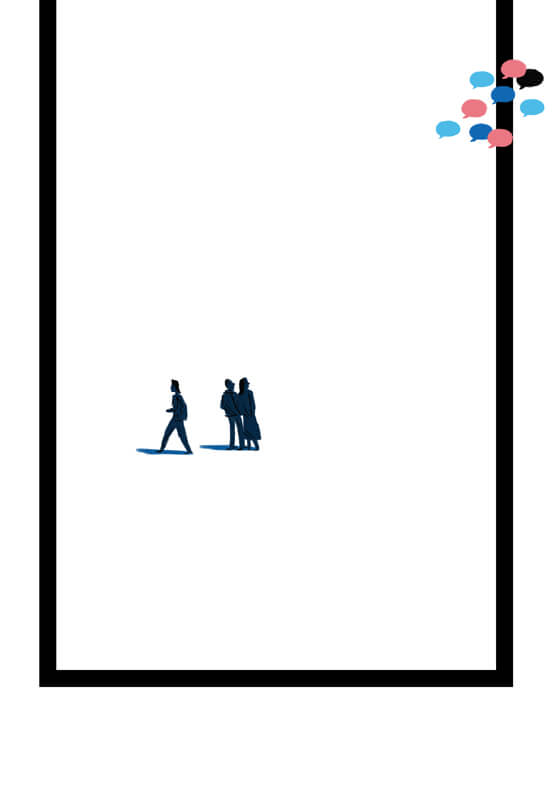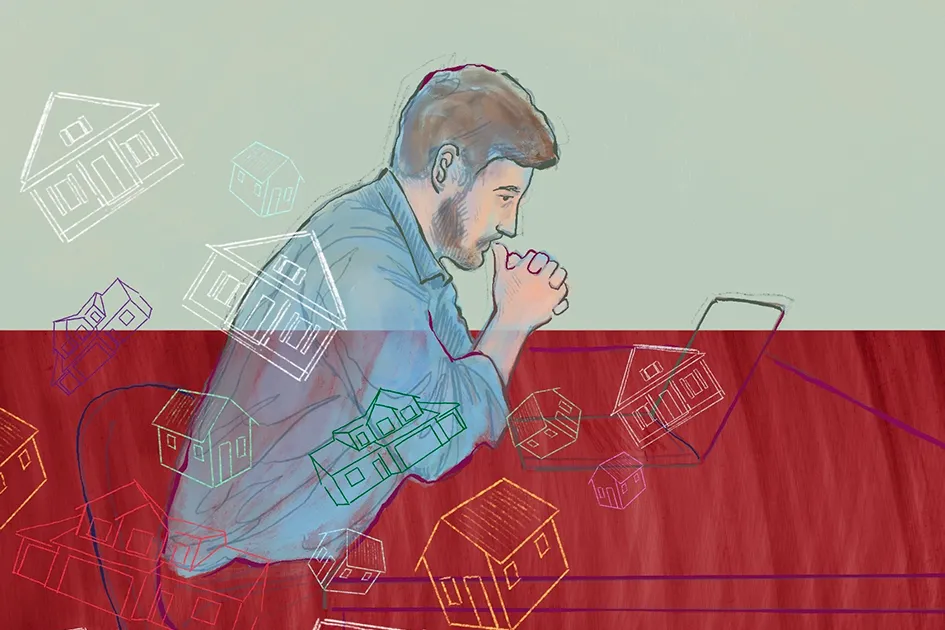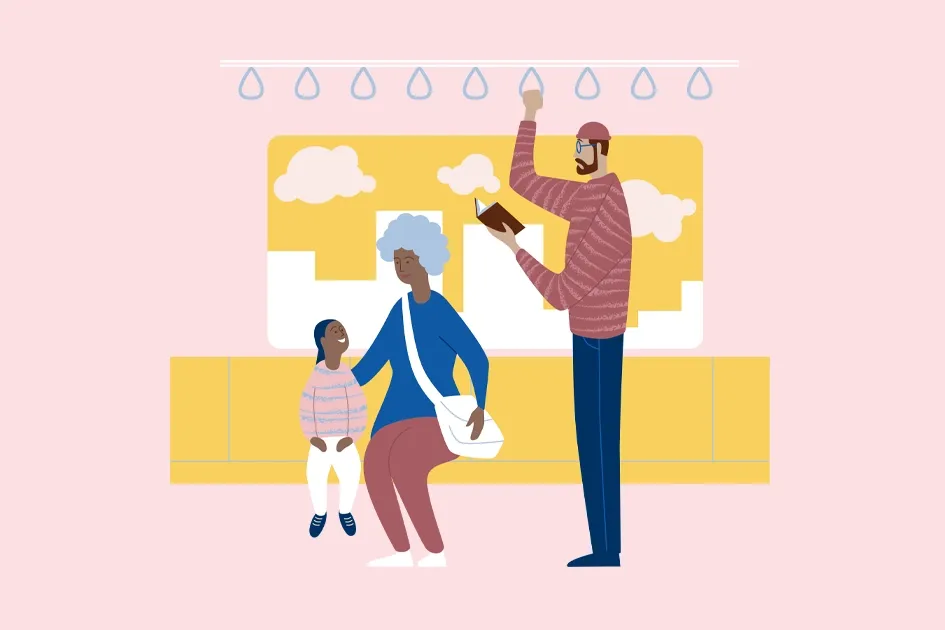In my late 30s, I discovered I had enemies. I was stunned to realize they were some of the people with whom I’d been attending church for the last several years. No, they didn’t wear disguises like the villains in superhero movies or act bratty like the popular mean girls of my middle school years. My enemies were as familiar to me as members of my extended family.

In fact, it was the family atmosphere of First Avenue Fellowship* that had drawn my husband, our three kids, and me to the small church shortly after we’d relocated to a new state. We enjoyed the Sunday worship there and appreciated the opportunity to socialize often with our fellow church members throughout the week via small group Bible studies as well as informal dinners
and picnics.
I cherished the culture of mutual care that existed at First Avenue—how, for instance, I had called a friend from church to let her know my dad had died that morning, and within an hour a couple of other church friends showed up at my door, bearing casseroles, offering help with childcare, and making sure we had enough money to attend the funeral in another state.
A couple of years after we came to the church, my husband Bill was invited to become an elder. But when he joined the leadership team, he discovered that things weren’t quite as loving and harmonious as they appeared. One of the other elders, Jack, had been entertaining some not-quite-kosher theology about the person and work of Jesus that had put him at odds with the other leaders. Though Jack had agreed not to share his thoughts with others in the congregation while he and the elders hashed out his ideas, they’d learned he’d been quietly disseminating them among his group of followers. By the time Bill joined the elder board, Jack was feeling emboldened by the fact that he was wooing some in the congregation to his views. Jack had begun referencing his unorthodox ideas when he’d be called upon from time to time to preach on Sunday morning.
The seeds of division flourished in this environment. Since Bill was the new guy on the elder board, Jack and his followers soon began scapegoating him for the problems now surfacing in the church. Bill had asked Jack and the other elders some frank questions about Jack’s theology during a couple of meetings, and in response, rumors began circulating about Bill: He was a troublemaker; he came to split the church. A few women stopped speaking to me unless they had to do so. Our children were no longer invited to activities planned by those in Jack’s clique.
Trust among the congregation was eroding, and people were measuring one another’s words and assessing loyalties so they could determine whose “side” they were on.
Trust among the congregation was eroding, and people were measuring one another’s words and assessing loyalties so they could determine whose “side” they were on. We knew that for every bit of gossip that got back to us about Bill and the other leaders who opposed Jack, there was 10 times more circulating just outside our earshot.
There were also rumors that Jack and his followers were thinking of leaving the church. Bill and the other leaders took weeks to go to the homes of each family in the church to see if they could clear the air and restore fellowship. The eerie response was the same from each one who’d aligned with Jack: “Everything is fine. We have nothing to say.”
Then one awful Sunday, “Team Leaver”—by this time, about a third of our congregation’s 125 people—didn’t show up for services. Jack later informed us his group had decided not to return. He told the elders his group planned to home church for a while until they could determine their next move.
Those of us left behind were devastated by the disrupted, damaged relationships. The church continued to shrink in the following months. Some, wearied by the drama, left in search of stability. Others sought refuge in a larger congregation that had functioning children’s programs. (The sudden, rapid loss of nursery workers, teachers, and students had done a number on our ministry to kids.) A few others decided to join Jack and his new church. After two years of intense drama leading up to the departure of Team Leaver, and months of deep, prayerful anguish afterwards, Bill and the remaining leaders announced with broken hearts that First Avenue Fellowship would be closing.

In the wake of these events, we spent a long, long time working through the grief and confusion each member of our family felt about what had happened. Could we have handled things differently? During this period, the Holy Spirit graciously convicted me of my own part in the sin that had torn the congregation. I hadn’t been completely innocent of gossip as the church was reaching its breaking point, sometimes speaking harshly about Jack and his followers to people I thought were our allies. I had to own my sin and name the deeper fear—of being misunderstood or left behind—that was fueling it. Acknowledging and confessing my sin helped me recognize my own tendencies to wound my relationships with others and with God. There were sinners like me on both sides of the intractable conflict.
Ironically, it was this confession that helped me to realize those on Team Leaver weren’t just estranged friends but had actually been acting as enemies of our family. I had long read Jesus’ words—the ones about turning the other cheek, going the second mile, and blessing those who persecute us—as referring to those outside His community of followers. (See Matt. 5:38-48.) Surely another person who claimed to love Jesus as I did could never be my enemy!
However, Jesus didn’t ever make that distinction when it came to talking about enemies. He even acknowledged Judas, the betrayer, to be among His closest friends. A light went on in my soul during my Bible reading that even as Jesus offered a blueprint for conflict resolution with a brother or sister in Matthew 18:15-18, He did not offer a promise that the conflict would be resolved with a happy ending. His final prayer for His disciples—offered just before His close friend Judas handed Him over to the authorities—was that His followers would be unified. (See John 17:1-26.) He knew how prone we are to make enemies of one another, how adept we are at rationalizing our self-protective impulses to demonize our opponents and justify divisions.
As I worked through the difficult process of forgiveness for Team Leaver, I leaned hard on Jesus’ wisdom about how to handle betrayal from religious leaders and friends alike. Some of the most powerful words from the final hours of His life took on new meaning as I sought to find a way forward in my faith: “Father, forgive them; for they do not know what they are doing” (Luke 23:34).

As Jesus suffered and died, He interceded from the cross for both accusers and friends. This included people like Peter, who acted in that moment as His enemy. When Jesus uttered those piercing words with some of His last breaths, they encompassed everyone—from the few frightened followers witnessing the horrors of His execution, to the ones who drove the spikes through His wrists and feet, to the ones who’d declared Him guilty. He was interceding for you. For me. And He was praying for Jack and all those on Team Leaver.
Throughout the conflict at church, and for a long time afterward, I was convinced Jack and his tribe knew exactly what they were doing to each person on Team Stayer when they chose error and division. But how could they? Though they’d acted as enemies, they couldn’t possibly know how their words and actions would wound us. I came to realize that they were acting out of their own needs and fears, both good and rotten, mixed together like nourishing wheat and weedy tares growing together in the same field. And too often the same is true of me.
Many months after First Avenue Fellowship closed its doors, one of the key couples from Team Leaver called to ask our forgiveness for the way they’d gossiped about Bill. While all four of us acknowledged that deep doctrinal divisions remained and it was impossible to return the relationship to the way things once were between us, we left the conversation with a measure of reconciliation. As we shared a bit of our family’s journey to heal from what had happened in the church, one revelatory moment came when they said with genuine surprise, “We had no idea this would affect you so deeply.”
But I knew Jesus did. And trusting the One who prayed for each of us from the cross empowered me to forgive, grateful in the knowledge that we ended the conversation with two fewer enemies in our lives.
Illustration by Paul Blow


